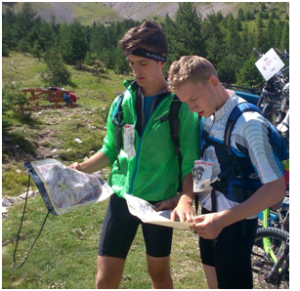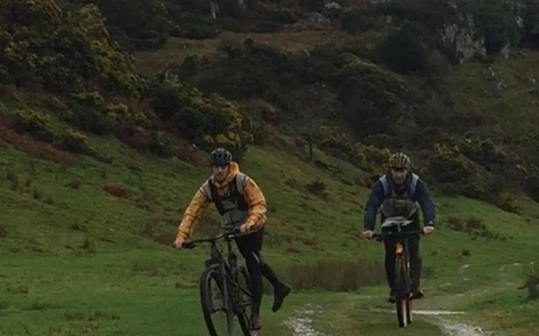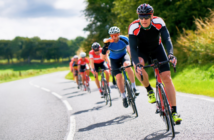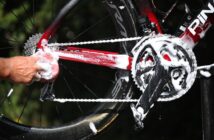I was introduced to adventure racing in 2013, competing in a local race called the Moxie Adventure Race with a friend of mine. I think we were the only juniors to ever compete in this predominantly mature populated event. However Brian Keogh from Totalexperience.ie was very welcoming and acted like a mentor slowly introducing us to the world of adventure racing. By the following year I  had competed in multiple different endurance events such as Achill Roar, Hell and Back and TEAR 24 hour. In 2014 Ivan Park, who many people will know as a massive player in Irish expedition racing scene, presented us with an opportunity to represent our country in France. That summer we came 8th in the Junior Adventure Racing World Championships in the Alpes de Haute region of France. This race entailed of five consecutive days of racing, each day involving mountain biking, trail running, and kayaking. It was my first introduction to multi-day, multi-sport racing and since then I have been hooked.
had competed in multiple different endurance events such as Achill Roar, Hell and Back and TEAR 24 hour. In 2014 Ivan Park, who many people will know as a massive player in Irish expedition racing scene, presented us with an opportunity to represent our country in France. That summer we came 8th in the Junior Adventure Racing World Championships in the Alpes de Haute region of France. This race entailed of five consecutive days of racing, each day involving mountain biking, trail running, and kayaking. It was my first introduction to multi-day, multi-sport racing and since then I have been hooked.
What is an adventure race?
Adventure races are said to be the ultimate test of endurance. In teams of two or four, athletes must navigate through the wilds of the country non stop day and night using only a map and compass in order to meet the necessary checkpoints and cut off times. Adventure races can vary from sprint distances (1 day) to ultra-distances (multi-day). Single day races can vary in distance from beginner (20 km) to expert (70 km) and consist of trail running, road/mountain biking and kayaking. Multi-day adventure races or expedition races can vary anywhere from 24 hours to 10 days in length averaging out at approximately 600km.
My Top 5 Tips For People New To The Sport Of Adventure Racing
1 -Train Smart
When you sign up for your first adventure race it might be hard to fight the temptation to go out and smash yourself up every hill and descent. Or it could be the contrary, you may not be prepared at all. However it is important to set yourself some sort of training regime. Most of us don’t have the luxury of being full time athletes and there for it is important you get the most out of our spare time. There are many sources of suitable training plans online. The most important thing is that it suits you and what you want to accomplish: Link to Quest training plans, can be found HERE
Keep it interesting long hours training quickly can get very monotonous. Don’t be afraid to try something different and mix it up. I feel adding variety to my training, helps me regain focus and motivation for race days.
2 -Recovery
This is a huge factor when training and racing all year round. So many athletes, once they get that buzz of endorphins, look for that same feeling over and over again. In turn, an increase in exercise levels leaves no time to recover. Having structure is vital, scheduling specific rest days or active recovery days is a must. Active recovery days could include a walk or a swim. Eating REAL food!. Eating enough foods that are as close to their natural state as possible is paramount for optimal recovery. Whole foods such as fruits, vegetables, nuts, beans, seeds and legumes are the most nutrient dense and easiest for you body to metabolise. Watch the time in which you take to recover sky rocket!. Don’t fall into the trap of buying energy bars, sports drinks and recovery shakes. Eating a diet based around whole foods will more than satisfy your daily requirements. Ensuring you are hydrated before, during and after any event will significantly decrease the possibilities of getting muscle cramps.
3 -Race Smart
Before taking part in your first adventure race it is a good idea to familarise yourself with the route. The nature of adventure racing, forces one to go off the beaten track and sometimes to areas that are not well  known. Single day races are generally marked or directed by marshalls but multi-day races usually don’t have signs or directions. Many races require a MANDATORY KIT, this kit will normally consist of a basic first aid kit, jacket, whistle or water. Being prepared with suitable clothing and your mandatory kit is a good idea. Knowing your limits, many adventure races have a longer route and a shorter route thus knowing your capabilities to ensure you have safe race is vital. Completing a route recce can help immensely, gaining course confidence for the day of the race. A smarter athlete can beat a faster athlete that’s running in circles.
known. Single day races are generally marked or directed by marshalls but multi-day races usually don’t have signs or directions. Many races require a MANDATORY KIT, this kit will normally consist of a basic first aid kit, jacket, whistle or water. Being prepared with suitable clothing and your mandatory kit is a good idea. Knowing your limits, many adventure races have a longer route and a shorter route thus knowing your capabilities to ensure you have safe race is vital. Completing a route recce can help immensely, gaining course confidence for the day of the race. A smarter athlete can beat a faster athlete that’s running in circles.
4 -Gear
Many athletes let specifics of gear get in their way of competing, unfortunately having the best bike or runners is NOT going to make you a better athlete. All you need are the basics to get you started. A pair of runners (preferably with extra grip for trails) and a entry level road/mountain bike. We stock a wide range of entry level bikes in Cycle Superstore like the Lapierre Audacio road bike to the Cannondale Trail mountain bike. If you begin to compete competitively, only then should you consider upgrading gear. People prefer spending money on hi-tec more aerodynamic equipment than spending time on their fitness.
5 -Play
Enjoy being out in nature. Even though it’s a race many people are doing it for bigger reasons other then tryng to beat you up the hill. Keep the training fun and enjoyable, as soon as it becomes a chore you should remind yourself why you started in the first place.
By Paddy Ward




